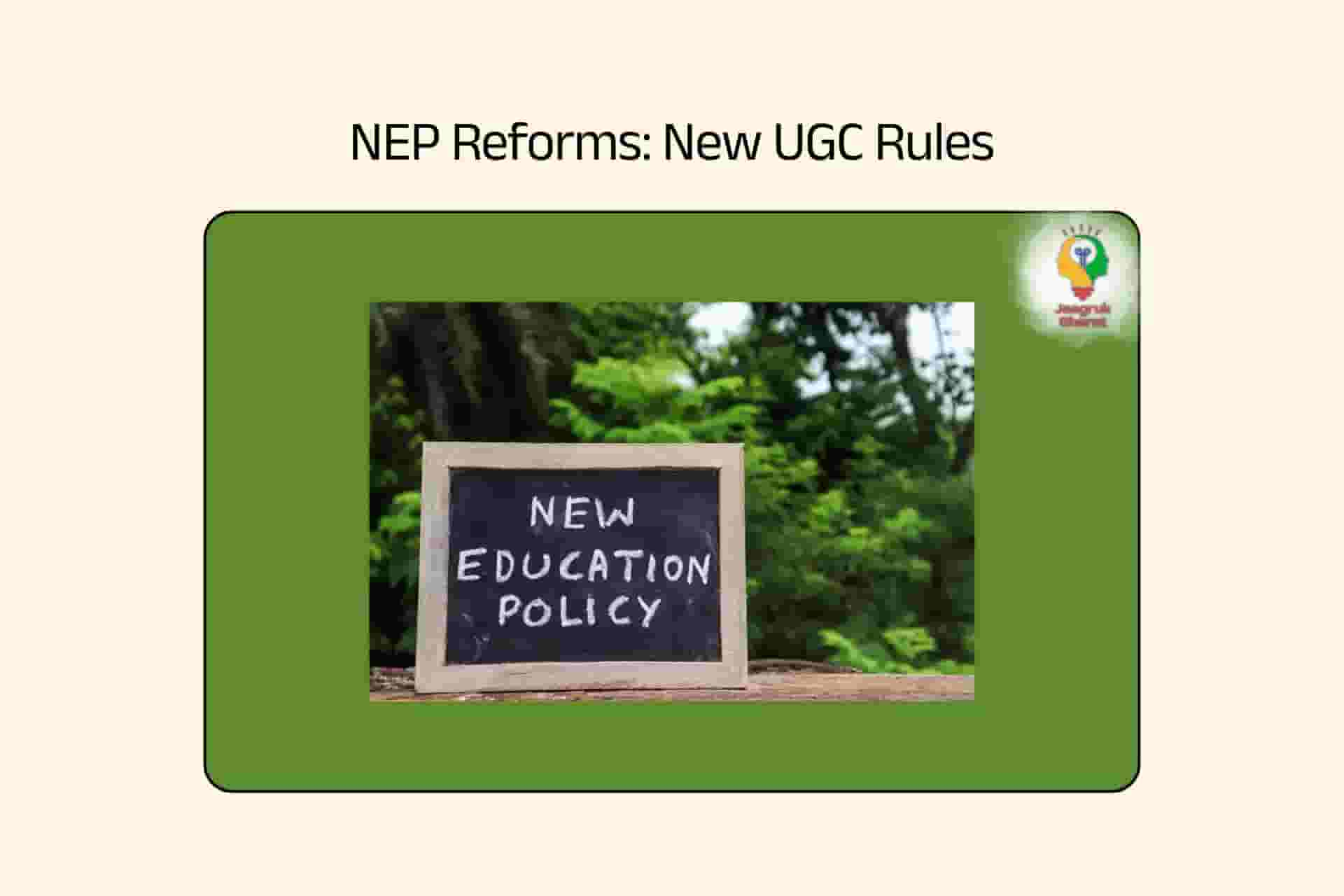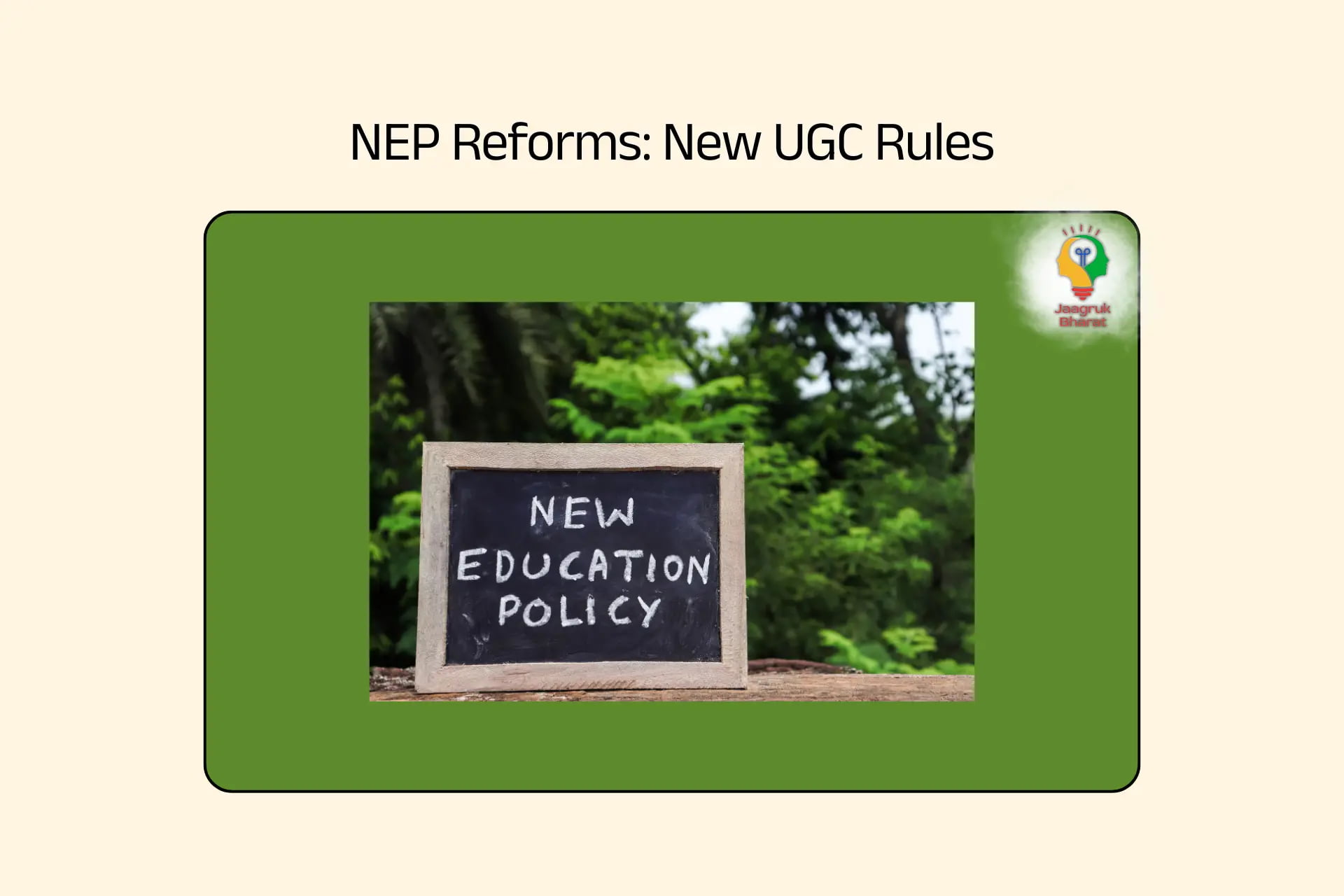NEP Reforms: New UGC Rules For Flexible Undergraduate And Postgraduate Degrees
Updated: 13-10-2025 at 7:26 AM
1k


In the recent past, some major changes have been brought under the National Education Policy (NEP) 2020. The University Grants Commission has suggested new regulations for the academic year 2024 to improve flexibility and accommodate students. They include the modified duration of the UG degrees, the emergence of inter-disciplinary programs and bi-yearly admission intakes. Thus, the goal of the development of the education system in India is focused on creating an educational system that corresponds to international standards while responding to students’ needs.
Read More: Paryatan Siksha Yojana
What Are The Key Features Of The New UGC Rules?
New educational policy changes such as flexible academic years, multiple points of entry/exit, and trans-disciplinary, are only some of the novelties reflected in the current working draught.
-
Flexible Duration: Under the new rules students have the the freedom to finish the course within a shorter period (shortened duration) or take a longer time to accomplish the same (extended duration).
-
Interdisciplinary Learning: A student can take 50 per cent credit in the major field of study and the remaining 50 per cent credit in skills, apprenticeship or any other field of study.
-
Bi-Annual Admissions: From the academic year 2005/2006 HEIs, such as colleges and universities, will be granted admission twice a year. Students can now enrol in two cycles: First Cycle: July-August and Second Cycle: January-February.
-
Multiple Entry-Exit: Policies let students put their education on hold and start it again at another time without losing credits.
What Are Accelerated And Extended Degree Programs (ADP and EDP)?
These options allow students to decide how fast or how long they want to take their degrees depending on their capacity and desires.
Accelerated Programs (ADP):
-
Created for learners who can finish their degrees in a shorter time.
-
ADP may be accommodated up to 10% of the total student capacity of HEIs.
Extended Programs (EDP):
-
No seat limit; specially designed for students who require more time to finish their lessons.
Selection Process:
-
Students will be reviewed every academic year for their credit-earning performance in the first or second semester to determine their appropriateness for ADP or EDP.
Read More: Ambedkar Scheme Of Interest Subsidy On Educational Loans
How Will The Curriculum Be Structured?
The government programme of study does not change, nonetheless, the time it takes to complete the programme may differ.
-
Credit Distribution: It is a requirement that 50 per cent of the total credit requirements of any course must be obtained in the major discipline. Accommodating credits can be in skills, apprenticeships or in other categories.
-
Customisable Course Load: The number of courses per semester will vary depending on how many semesters are in the programme.
What Are The Bi-Annual Admissions?
Students have more chances to enrol in the university two times a year which can be a plus for those who are thinking about when to start.
-
Availability: Intake is done in the academic year, July–August and January–February.
-
Adoption by HEIs: If HEIs are ready to embrace the system, then they will adopt it.
How Does This Support Multidisciplinary Learning?
Students can select subjects in different fields than their major, which enhances the grounded and broad learning system.
-
Interdisciplinary Opportunities: Students can transfer fields in UG or PG studies if they pass the examination in entrance tests.
-
Skill Development: Specialises in apprenticeship education, as well as interdisciplinary programmes.
Read More: Government Schemes Launched On National Education Day
What Are the Benefits of These Reforms?
The reforms promote inclusivity, global standards, and adaptability and are inclusive, international, and flexible.
-
Flexibility: Education is accessible for students at any particular stage of learning.
-
Inclusivity: The students can enter into the programme from any academic background.
-
Global Alignment: Table summarises help to put Indian higher education in the global reference system.
What Are The New Admission Eligibility Criteria?
The rules that are established eliminate the direct association of admission with specialised guidelines of each discipline.
Class XII Discipline:
-
They can choose any stream or subject in any undergraduate or postgraduate course without much concern with their class XII standards.
Entrance Exams:
- It operates on the policy that students must be admitted through national or university-level exams.
Conclusion
The new UGC draught regulations are a welcome paradigm shift in the general design of the higher education system in the country to become more flexible, inclusive, and globally competitive. These reforms enable students to make their own decisions about how they want their learning to be and encourage interdisciplinarity and flexibility.
For any queries or to share your opinions, visit Jaagruk Bharat's community page, and be a part of India’s Jaagruk society.
Government Links
Frequently Asked Questions
0
0
1k
0
0
1k Views
0
No comments available





Our Company
Home
About
T&C
Privacy Policy
Eula
Disclaimer Policy
Code of Ethics
Contact Us
Careers
Cancellation & Refund Policy
Categories
Women
Insurance
Finance
Tax
Travel
Transport & Infrastructure
Food
Entertainment
Communication
Government ID Cards
E-commerce
Traffic guidelines
Miscellaneous
Housing and Sanitation
Sports
Startup
Environment and Safety
Education
Agriculture
Social cause
Employment
Disclaimer: Jaagruk Bharat is a private organization offering support for documentation and government scheme access. We are not affiliated with any government body. Official services are available on respective government portals. Our goal is to make processes easier and more accessible for citizens.
All Copyrights are reserved by Jaagruk Bharat